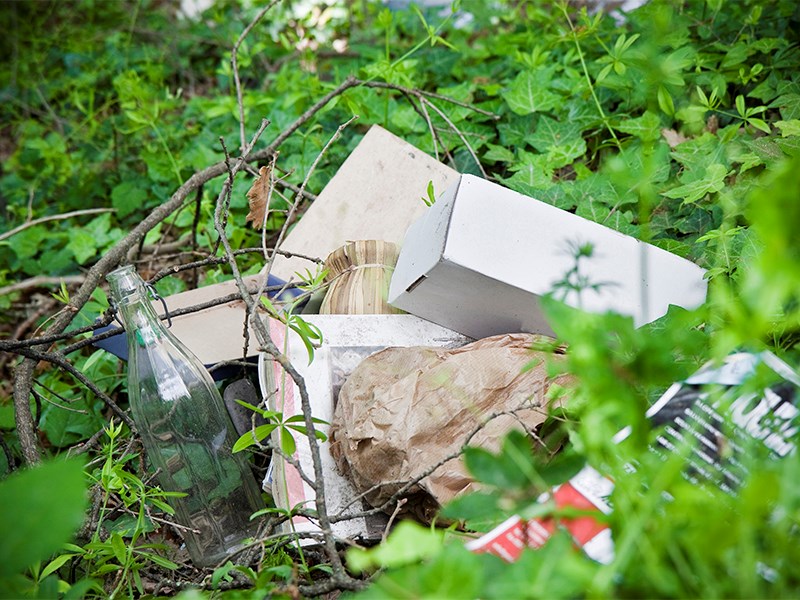Powell River region’s problem with backcountry dumping will not be solved through the use of wildlife cameras or by erecting more signs, according to BC Conservation Officer Service officer Andrew Anaka. Public cooperation is required to curb the illegal activity, he said.
Anaka responded to recommendations in a report from Let’s Talk Trash, Powell River Regional District’s solid-waste management education program, that call for exploring the use of motion-sensitive cameras to record illegal dumping and putting up signs in areas known as common dumpsites to improve public awareness.
The report notes the amount of illegal dumping in Powell River’s backcountry is not decreasing, despite an annual effort resulting in more than 100 tonnes of waste being hauled out of the bush over the past five years.
During Trash Bash on Saturday, April 29, 33 tonnes of illegally dumped garbage was collected and removed. The total includes community members dropping off items such as old mattresses and appliances.
“Illegally dumped trash can become a welcome mat for more of it if it’s not cleaned up,” the report states.
Trash Bash is designed to bring awareness to how much illegal dumping continues to persist in the region.
The Let’s Talk Trash report identifies Duck Lake Road and the Timberlane pole line area as places continuing to receive the majority of dumping. It recommends more provincial Report All Poachers and Polluters (RAPP) signs be placed in those areas and others known to be common backcountry dumpsites.
The conservation officer service routinely receives a high volume of calls related to illegal dumping, said Anaka. He added that he doubts lack of public awareness is the problem.
“If people see garbage that’s been dumped, they call us immediately,” said Anaka. “I’m not sure there’s any way to increase public awareness when everybody already knows you can’t do it and everybody reports it.”
Let’s Talk Trash team member Ingalisa Burns, one of the report’s authors, said she appreciates the challenges law enforcement officials face to combat dumping.
“It is hard to enforce,” said Burns. “We are developing a relationship with the local RCMP to see what more can be done.”
Burns said the tactic of using motion-activated wildlife cameras has been used by other local governments in the province to stem the amount of dumping.
“If you can get some sort of identification of the person, a face or a licence plate, that could be quite effective,” she said.
Anaka said it is possible the cameras could be effective, but they would have to be used in a well-defined location in order for them to succeed.
“I could set up a camera on Duck Lake Road and get several thousand pictures of people walking their dogs and riding their bikes,” he said, “but how would I know who’s dumping?”
It only takes a moment to drop a bag of garbage out of a truck and dumping is not restricted to a specific place, he added.
Anaka said he thought monitoring the cameras in particular areas would be time-consuming and take away from the local office’s ability to patrol the backcountry, work that has caught people dumping in the past.
Anaka said his office relies on the public to provide information on where and when the dumping is happening. Officers investigate and enforce BC’s Environmental Management Act.
“We do as much enforcement as possible and officers are out there on a regular basis,” he said. “If we come across it, we deal with it harshly.”
Penalties for polluters can reach as high as $1 million, he said. Even minor offences such as littering can be fined at $575, he added.
Burns said the backcountry is a key element for developing the tourism industry and the recreation opportunities it provides makes it “a place that supports and sustains the amazing quality of life we have here.”
Dealing with illegal dumping rests with the community, she added.
“Ultimately, it’s up to the population of Powell River to look out for itself,” said Burns. “It’s up to the community to see a value in having a backcountry that is pristine.”



